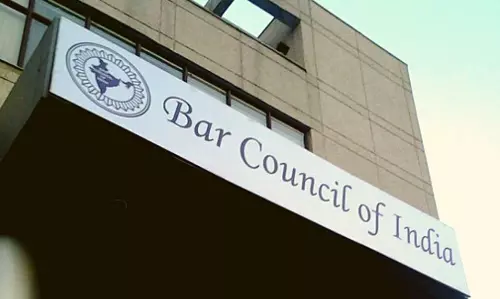
Denial of bail and Contempt of Court
text_fieldsThe recent verdict by the Bombay High Court of denying a bail application to the Delhi University lecturer G N Saibaba, is unacceptable to the democratic conscience and principles.
The Nagpur bench of the court rejected a regular bail application filed by Saibaba and directed him to surrender within 48 hours. He was arrested for alleged links with Maoist extremists. Writer Arundhati Roy was also issued a criminal contempt notice by the Bombay High Court for writing an article in a magazine in May last year on Saibaba’s arrest criticising the rejection of his bail plea. The court observed that Roy made ‘scandalous and scurrilous allegations’ against the judiciary, the Central and state governments and the police machinery. Saibaba who is 90 percent disabled and wheelchair-bound, had pleaded for extending his bail on the ground of his health. A social activist, he was arrested by the Gadchiroli police of Maharashtra in May 2014 for connections with naxals. His health deteriorated after a year in jail due to which the two-member bench of the Bombay High Court granted him bail in last July. He was under medical treatment while on bail and Angioplasty was performed on him in August. The court stated that it has been convinced of the allegations against Saibaba and that he was a member of the Revolutionary Democratic Front (RDF) which has links with CPI (Maoist). But the court does not mention the concerns about the Saibaba leaving the country while on bail, committing any crime or destroy the evidences against him. Being a member of RDF is the reason cited for denying his bail plea. The Supreme Court observed in 2011 that mere membership of a banned organization even if it was banned under UAPA or TADA or any other statute, will not incriminate a person. In this case the RDF is not a banned outfit. Still he has been denied bail. A physically challenged wheelchair-bound University lecturer has been jailed again due to the threats he posed on national security. The verdict is not something a civilized judiciary could be proud of.
The harsh stance against Roy is also immature, leading to anxieties. The court also pointed out the examples she gave, of the orders granting bail to Babu Bajrangi, Maya Kodnani and Amit Shah. It stated that a bail was granted or denied based on facts and that the comparison was irrelevant. The judiciary had several times made clear that the Contempt of Court was something that has to be executed very cautiously and only with a sense of democracy. It’s also indisputable that the citizens have all the right to criticise the judiciary, the government machinery as well as the law making system. Given that even the credibility of the judiciary shouldn’t be questioned or its functioning shouldn’t be disrupted, the people have the right to point out the downsides in delivering justice and demand rectifications. According to eminent judges like Justice Krishna Iyer , since it’s the judiciary that decides whether something is a Contempt of Court or not, they should opt the path very cautiously and with self control. The judges who ruled in a case in the British House of Lords were ridiculed by a British newspaper who addressed them as ‘Old Fools’. Justice Fali S Nariman who was present there at the time asked Sydney Templeman, one of the judges why no contempt proceedings were initiated against the newspaper. Templeman said that he believed he wasn’t a fool and someone else who thought he was one, was entitled to his opinion. He also added that the judges in England didn’t take notice of personal insults. Not everybody can tolerate it sensibly. The judiciary should function to protect the democratic rights and not to deny it.























